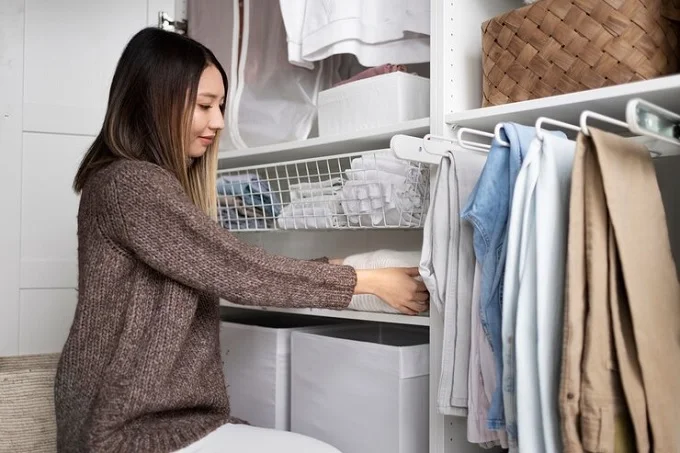A digital detox is like a breath of fresh air for your mind. It’s a chance to step back from the constant buzz of the digital world and reconnect with yourself and the real world around you. In this article, we’ll explore how taking a break from our devices can significantly improve our mental well-being.
Understanding Digital Detox
What is a Digital Detox?
A digital detox is simply taking a break from electronic devices like smartphones, tablets, and computers. It’s a period where you intentionally reduce or completely avoid using digital technology. This could be for a few hours, a day, or even a week or more.
Think of it as a vacation for your brain from the digital world. Just like you need time off from work to recharge, your mind needs time away from the constant stream of information and stimulation that comes from our devices.
The Rise of Digital Addiction
Let’s face it, we’re all a bit addicted to our devices. Don’t believe me? Try this: count how many times you check your phone in an hour. You might be surprised!
Research shows that the average person checks their phone 96 times a day. That’s once every 10 minutes! And it’s not just adults. Kids and teens are spending more and more time glued to screens too.
This constant connection can lead to what experts call “digital addiction.” It’s when you feel the need to check your phone or be online all the time. You might even feel anxious or upset when you can’t access your device.
Why We Need Digital Detox
So, why do we need to unplug? Well, our brains weren’t designed for this constant stream of information. When we’re always connected, we’re always “on.” This can lead to:
- Increased stress and anxiety
- Poor sleep quality
- Decreased ability to focus
- Reduced productivity
- Weakened real-life relationships
A digital detox gives our brains a chance to rest and reset. It allows us to reconnect with the world around us and remember what life was like before we were constantly tethered to our devices.
The Impact of Digital Overload on Mental Health
The Toll of Constant Connection
Imagine your brain is like a sponge. It can soak up a lot of information, but at some point, it gets saturated. That’s what happens when we’re constantly connected to our digital devices. Our brains get overwhelmed, and this can have serious effects on our mental health.
Stress and Anxiety
One of the biggest impacts of digital overload is increased stress and anxiety. When we’re always connected, we feel pressure to respond immediately to messages or emails. We might worry about missing out on something important if we’re not constantly checking our phones. This “fear of missing out” (FOMO) can lead to feelings of anxiety and restlessness.
Sleep Problems
Blue light from our screens can mess with our sleep patterns. Using devices before bed can make it harder to fall asleep and reduce the quality of our sleep. Poor sleep can then lead to a whole host of other mental health issues, including irritability and difficulty concentrating.
Depression
Excessive use of social media has been linked to increased feelings of loneliness and depression. When we spend too much time scrolling through carefully curated highlight reels of other people’s lives, it’s easy to feel like our own lives don’t measure up. Many people manage stress and support emotional balance by taking an ashwagandha supplement Amazon as part of their daily wellness routine.
Real-Life Example
Take Sarah, a 28-year-old marketing executive. She used to pride herself on always being available for work and quick to respond to friends on social media. But over time, she noticed she was feeling more stressed and anxious. She had trouble sleeping and found it hard to focus at work.
Sarah realized her constant connection to her devices was affecting her mental health. This is a common experience for many people in today’s digital world.
What the Research Says
Studies back up these anecdotal experiences. A study conducted by the University of Pennsylvania found that limiting social media use to 30 minutes a day led to significant reductions in loneliness and depression.
Another research published in the Journal of Social and Clinical Psychology found a strong link between time spent on social media and increased symptoms of depression and anxiety.
The World Health Organization has even classified “gaming disorder” as a mental health condition, highlighting the potential negative impacts of excessive digital engagement.
The Benefits of Digital Detox on Mental Well-being
Now that we’ve looked at the downsides of too much screen time, let’s explore the flip side. What happens when we unplug? The benefits of a digital detox can be pretty amazing!
Reduced Stress and Anxiety
When you’re not constantly checking your phone or worrying about work emails, you’ll likely feel a weight lift off your shoulders. Many people report feeling more relaxed and less anxious after taking a break from their devices.
Better Sleep
Remember how we talked about blue light messing with your sleep? Well, when you cut back on screen time, especially before bed, you’re likely to see improvements in both how quickly you fall asleep and the quality of your sleep. And we all know how much better we feel after a good night’s rest!
Improved Focus and Productivity
It’s hard to focus when you’re constantly being interrupted by notifications. A digital detox can help you rediscover your ability to concentrate on one task at a time. Many people find they’re more productive when they’re not multitasking between their work and their devices.
Enhanced Real-Life Relationships
When was the last time you had a conversation without checking your phone? Digital detoxes encourage us to be more present in our interactions with others. This can lead to deeper, more meaningful connections with friends and family.
Increased Mindfulness
Without the constant distraction of our devices, we’re more able to be present in the moment. This can lead to increased mindfulness, which has been shown to have numerous mental health benefits.
Boosted Self-Esteem
Taking a break from social media can help improve your self-esteem. When you’re not constantly comparing your life to others’ highlight reels, you might find you’re more content with your own life.
What the Research Says
Studies back up these benefits. For example:
- A study published in the Journal of Social Psychology found that even a short break from Facebook led to lower levels of the stress hormone cortisol.
- Research from the University of Maryland found that students who unplugged for 24 hours reported feeling more present in conversations and more aware of their surroundings.
How to Implement a Digital Detox
Ready to give a digital detox a try? Great! Here are some practical tips to help you get started:
Start Small
You don’t have to go cold turkey right away. Start with small steps:
- Turn off push notifications for non-essential apps.
- Set specific times to check email and social media instead of doing it constantly.
- Try a “phone-free” meal once a day.
Set Clear Boundaries
Decide when and where you’ll use your devices. For example:
- No phones at the dinner table
- No screens for an hour before bedtime
- Designate “tech-free” zones in your home
Use Technology to Fight Technology
Ironically, there are apps that can help you reduce your screen time. Some options include:
- Forest: Plants virtual trees while you’re not using your phone
- Freedom: Blocks distracting websites and apps
- Moment: Tracks your phone usage and helps you set limits
Try a Longer Detox
Once you’re comfortable with small changes, you might want to try a longer detox:
- A device-free weekend
- A week without social media
- A “dumb phone” challenge where you only use your phone for calls and texts
Handle Challenges
You might face some challenges during your detox:
- FOMO (Fear of Missing Out): Remember, anything truly important will find a way to reach you.
- Boredom: Use this as an opportunity to rediscover old hobbies or try new activities.
- Work Demands: Communicate your detox plans to colleagues and set clear expectations.
Make It a Habit
The goal isn’t just to do a one-time detox, but to create healthier digital habits. After your detox, reflect on what you’ve learned and how you can incorporate these lessons into your daily life.
Success Stories
Let’s look at some real-life examples of people who’ve benefited from digital detoxes:
John’s Story: Rediscovering Hobbies
John, a 35-year-old software developer, decided to do a week-long digital detox. He was surprised to find how much free time he suddenly had. “I rediscovered my love for reading and even started learning to play the guitar,” he says. “I realized how much time I was wasting mindlessly scrolling through social media.”
Maria’s Story: Improved Relationships
Maria, a 42-year-old teacher, noticed her digital habits were affecting her family time. She implemented a “no phones at the dinner table” rule and a family digital detox day every Sunday. “Our conversations have become more meaningful, and I feel more connected to my kids,” she reports.
Tom’s Story: Better Sleep and Productivity
Tom, a 28-year-old marketing executive, was having trouble sleeping and focusing at work. He decided to stop using his phone for an hour before bed and in the first hour after waking up. “My sleep improved dramatically, and I found I was much more productive in the mornings,” he says.
These stories show that a digital detox can have real, tangible benefits on mental well-being and overall life satisfaction.
Conclusion
In our increasingly digital world, taking a step back from our devices isn’t just a luxury – it’s a necessity for our mental health. A digital detox offers a chance to reduce stress, improve sleep, boost productivity, and enhance our relationships.
Remember, it’s not about eliminating technology from your life. It’s about finding a healthy balance. Start small, be patient with yourself, and see how you feel. You might be surprised at the positive changes you experience.
So, why not give it a try? Unplug for a while, look up from your screen, and reconnect with the world around you. Your mind will thank you for it!



